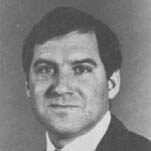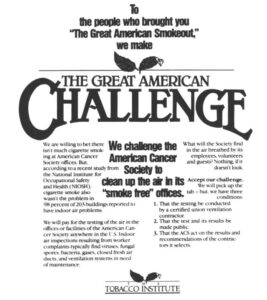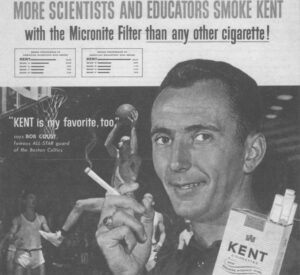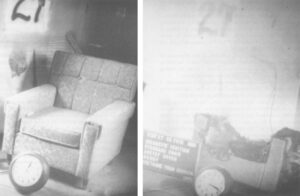Myron Levin
- 1987

Fellowship Title:
- The tobacco industry
Fellowship Year:
- 1987

Buying Innocence by Association – Tobacco’s Strange Bedfellows
The tobacco industry is forging new, behind-the- scenes relationships in its effort to polish its image and to fight smoking bans and excise taxes. In a public relations fantasy come to life, the $35 billion-a-year industry has aligned itself with organized labor and black, Hispanic and women’s groups, whose civil rights rhetoric and appeals for social justice have a special resonance in American life. Ample supplies of ingenuity and cash are being lavished on these allies, for whom tobacco money may buy anything from scholarships and entertainment to printing and legal services. For an industry that still insists that smoking isn’t a proven cause of illness, and that cigarette ads aren’t meant to increase smoking, these friendships can help restore lost credibility. With sympathetic allies as point men in the tobacco wars. the cigarette makers can spend more time behind the lines. Take the case of a slickly-produced booklet telling workers how smoking rules can be “a smokescreen” to avoid safety improvements and liability for industrial disease. “Remember, although he may say he only has

“The Greatest Health Protection in Cigarette History!”
WEST GROTON, MA.-By the time he was 40, Milton Wheeler was too short of breath to fix the kids’ mini-bikes or play a round of golf. He had to give up his career as a policeman–and his dream of becoming chief–there being no place for a small town cop who couldn’t haul a stretcher. Wheeler spent his last months tethered to an oxygen tank, taking an hour and a half to totter to the bathroom and back to his hospital bed. “He stared at the bathroom, thinking about how he was going to get in there, and wouldn’t let anyone help him get in there, and that’s how he lived his life,” his oldest son Garry recalled. In 1982, just after his 50th birthday, Milton Wheeler died of asbestosis, a disease caused by scarring of the lungs by asbestos fibers. Asbestosis was a word he’d never heard until the doctors said he had it. In a fleeting, nearly forgotten chapter of his life, Wheeler worked with asbestos at a paper mill for a few months

Making A Fire-Safe Cigarette
Not long after saying good night to the last dinner guest, the Mitchell family was dead. Billie Mitchell, 33, was a non-smoker-, his wife Kathi, 27, smoked occasionally. A guest may have dropped the cigarette, or maybe it spilled from an ashtray into a crack of the sofa that night in August, 1985. Apparently it smoldered, undetected, as the household slept, finally starting the fire that killed the couple, their children Jennifer, 4, and Joshua, 1, and a visiting cousin. Bob Calvin, Billie’s friend and boss at a local trucking firm, was called next morning to the home in Taft, California, to help identify the bodies. “After the tears,” Calvin said, “I got sick.” Calvin had been through this before. During his childhood in Oregon, Calvin recalled, two of his young cousins died, and a third was horribly disfigured by a furniture fire from a cigarette dropped at a party. “How he (the third cousin) lived is beyond everybody’s comprehension,” Calvin said. Cigarette smoking has been called the nation’s leading preventable cause of death, accounting

The Second Wave of Tobacco Litigation
Cigarette companies boast of never losing a verdict or paying a penny to settle any of nearly 300 lawsuits filed against them since the 1950s on behalf of dead or dying smokers. Many other producers of unsafe products have not fared so well. Heavy losses in product liability suits, and the prospect of thousands more settlements or damage awards, drove Manville Corp., the asbestos giant, and A. H. Robins Co., maker of the Dalkon Shield intrauterine devise, into the bankruptcy courts. In dozens of less prominent cases each year, manufacturers of drugs, pesticides, toys, appliances and other products are held liable for injuries to consumers–in some cases to consumers who were partly at fault. There are no firm statistics, but plaintiffs are estimated to win nearly half the product liability suits that go to trial, according to analysts with the Rand Corp. By sheer numbers, the health toll taken by cigarettes exceeds that from all other consumer products. According to the U.S. Surgeon General, smoking causes more than 300,000 premature deaths annually from cancer, cardiovascular
